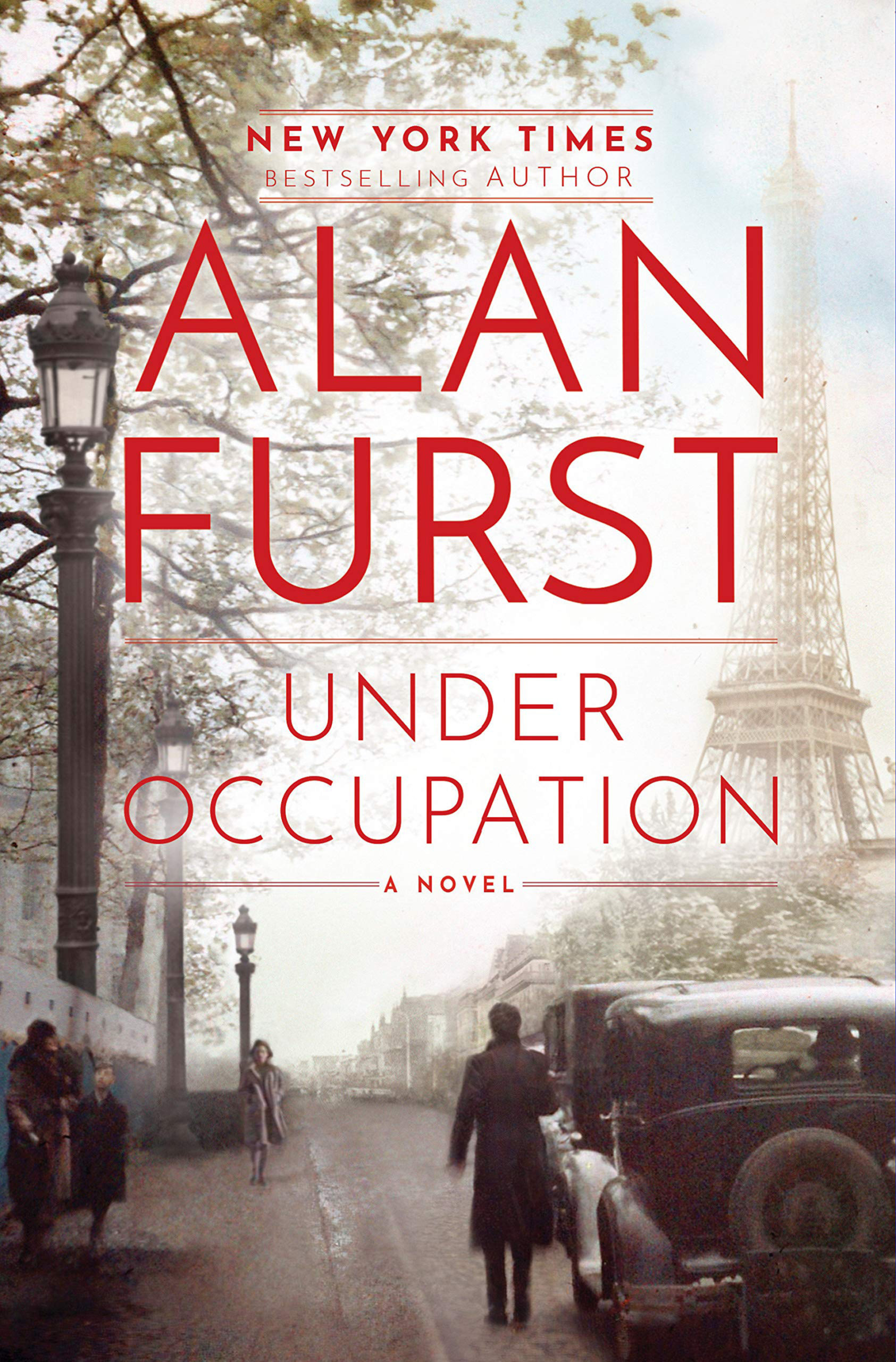A Love Letter To 20th-Century Paris


Remember the old analogy game test — X is to Y as A is to . . . ? In that spirit, try this one: Dublin in the 1890s is to James Joyce, as Paris in the early 1940s is to . . . ? The answer, as fans of World War II espionage fiction well know, is Sag Harbor’s Alan Furst, whom The New York Times once called “America’s preeminent spy novelist.”
Arguably, there is no contemporary fiction writer in this country who has detailed so consistently this dramatic, horrific period of mounting Nazi hegemony in Europe, as it played out on the snaking cobblestone streets of arrondissements in Paris and in the furtive underground safe-house movement throughout the country. It was an existential time that tested the mettle of average citizens under siege. As Furst quotes Tolstoy, “When a war comes to your country, you have to join up . . . You may not be interested in war, but war is interested in you.”
“Under Occupation,” Furst’s 16th book, once again explores Paris (mainly) in 1942, a tale, the author notes, that’s based on true events when émigré Poles — electricians, welders, machinists — were forced to work at a naval yard in Kiel, capital of the northern German state of Schleswig-Holstein, where U-boats were being built. Some of the prisoners managed to smuggle out intelligence about materiel and navigation routes, and sometimes Resistance operatives were able to send the technical info to Paris, where, it was hoped, it would make its way to the British Secret Service in London.
Spying was, needless to say, dangerous work that required daring and courage, but it also involved luck. One of the ironies of the Resistance, as Furst and others have shown, was the degree to which the partisans sometimes fell to friendly fire — British aircraft strafing the very areas where they were working. One was either against the Boche (a pejorative for Germans) or willing to act for France, a risk that many ordinary citizens preferred not to take but found themselves morally coerced into. This was the case with Furst’s protagonist, Paul Ricard, a novelist, who reluctantly finds himself drawn into action by accident and then by soulful commitment, even as he keeps on trying to write his new book for his understanding publisher.
Born in New York, Furst lived for several years in Paris, where he obviously fell in love with every street and café. Indeed, it’s been said of his novels that you can use them as maps, the details are — or were —that accurate. Of course, he’s looking back almost 80 years, but as he said recently, “Thank heaven for the internet: I can see photographs taken of cities during the late ’30s and early ’40s.”
Alas, Furst’s style has become familiar, details at times getting in the way of plot and character development. Extended descriptions of French food, dress, living quarters, class manners and mores interrupt the narrative. It’s nice to have a quotation from Churchill’s “deep, rumbling, and fiercely inspiring voice” at the time of the British and American invasion of North Africa — “This is not the end. This is not even the beginning of the end. But it is, perhaps, the end of the beginning” — but such asides are not necessary. It’s good to be with Furst at lunch at the Sobrino de Botín, “said to be the world’s oldest restaurant —opened in 1725,” but does the reader need to know that the yellowish curved potatoes that arrived with the chicken and wine were known as “rattes”?
Such dilations take away from the action and from the characters who, even when they engage in love making, don’t emerge as flesh and blood creations full of the visual and rhythmic images he lavishes on the city. Furst has said he particularly likes to create strong women characters. Here, they would include the beautiful aristocratic Leila and the bi-sexual dedicated Polish émigré, Kasia, but his best prose is reserved for setting: “On the wharves work continued, winches straining and grinding, warning whistles sharp in the air as cargo nets swung between the freighters and the dock.” Essentially, “Under Occupation” seems less an adventure-cum-romance than a sensual love letter to Paris of former days — to “the very particular scent the city wore, compounded of age and dust and sewers and perfume and Gauloises smoke and potatoes frying in oil.” Bien sur.
Alan Furst will be reading and signing books at Canio’s in Sag Harbor on Friday, November 29, at 5 PM.



